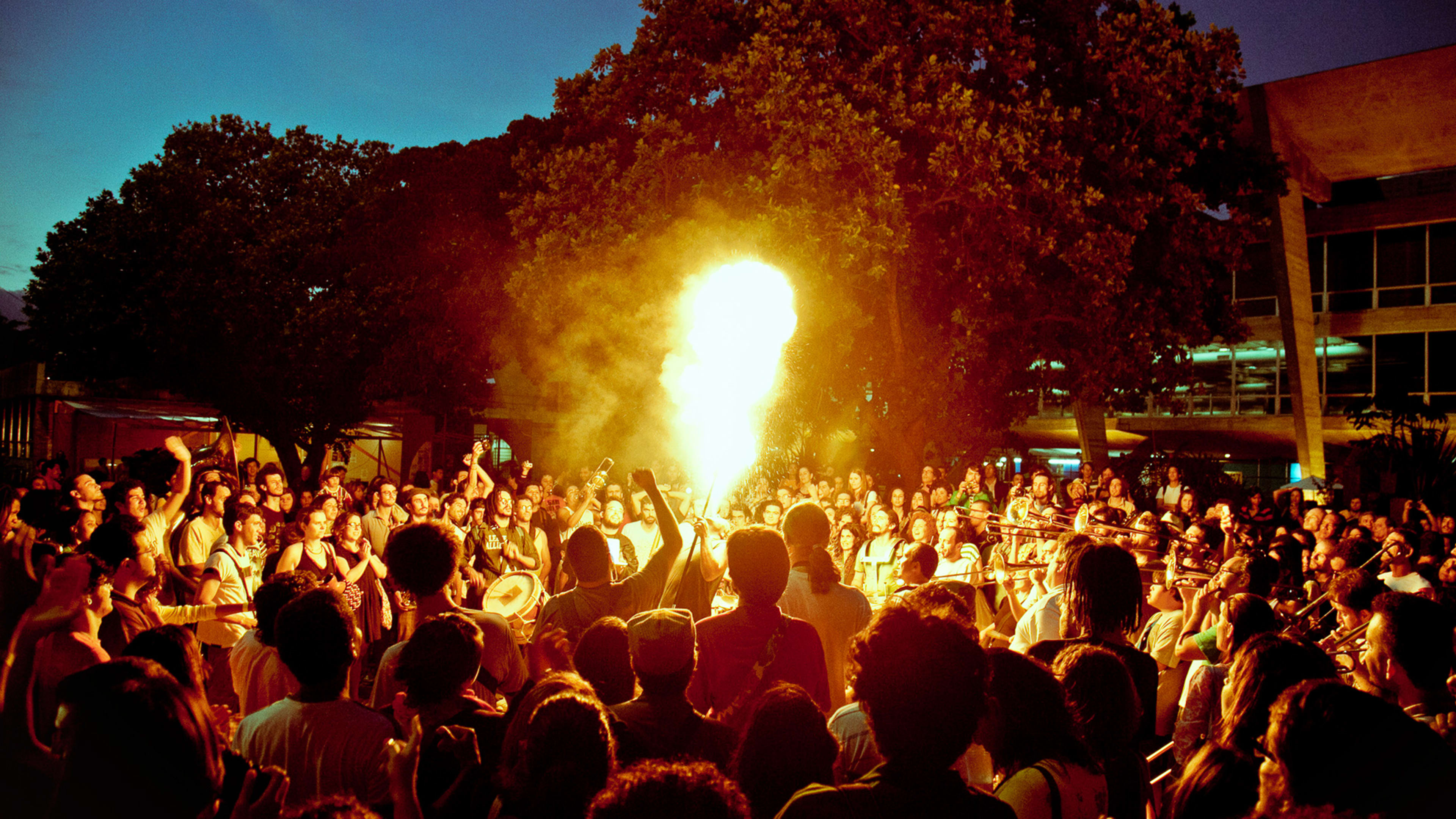Hospitality legend Chip Conley is best known for starting the Joie de Vivre hotel chain and for, more recently, being Airbnb’s head of global hospitality and strategy. But his day job isn’t the only thing Conley is passionate about. He has a side gig running Fest300, a site dedicated to curating the world’s best festivals, and creating a new kind of travel guide in the process.
“We’re creating a movement here,” Conley says, “the idea that people make a pledge to go to one festival a year as a means of becoming more culturally curious.”

When I spoke with Conley on the phone last week, however, one question was on my mind. How do you define a festival, anyway? Does a concert have to have a certain number of acts to qualify? Is a religious pilgrimage a festival? And perhaps of relevance to Fast Company’s readership, do SXSW and CES qualify as festivals anyway?
Conley was pleasantly elusive. He told me that defining a festival is like defining porn: ”You know it when you see it.” A festival, he added, “Is a place where collective effervescence occurs. Emile Durkheim named that phenomenon a hundred years ago. It’s an experience in a festival where people lose track of themselves and feel a connection with other people who are experiencing something bigger than themselves . . . and a conference is not a festival. SXSW is on our list, but not because of digital—because of music and film. TED is not there because it is a conference.”
Fest300, which, as the name implies, spotlights 300 festivals a year, connects with Conley’s passion for “cultural curiosity” and “collective joy.” The site, which began as a point-of-view editorial site in 2013 and has since added more social elements, is centered around a curated festival list, which includes events like Carnival in Rio de Janeiro, Taiwan’s Pingxi Sky Lantern Festival, and Spain’s unusual El Colacho Festival. Thirty of the events on the list were crowdsourced from 50,000 of the site’s users, and the rest were selected by Conley and his team.
“We have some that are really small like El Colacho in northern Spain, which is a very strange festival with baby jumping and a few hundred attendees. Kumbh Mela in India is a religious festival, meanwhile, with over 100 million people. We look at diversity, and we look at which festivals out there capture the full range of human experience, from spirituality to arts and sports.”
And festivals, for Fest300, are a way for the startup to attract eyeballs and generate content. The featured festivals’ descriptions are written in-house, with photos, videos and reviews grabbed from Instagram, YouTube, and other sources. There’s also a “magazine” featuring articles by Conley himself (in one recent entry, he recommends 10 awesome festival documentaries).
But during our conversation, Conley noted that online travel content is becoming increasingly user-generated. He emphasized that filtering user content is crucial. The travel portal Matador Network, which has a business relationship with Fest300 and many other travel sites, was cited as doing a particularly good job in that regard.
The economics of festivals can vary widely depending upon the audience and the experience, but music festivals—and electronic music festivals in particular—are a lucrative prospect. According to a 2014 Eventbrite/Harris poll, one in five millennials attended a music festival in the past year, twice the rate of the general population. Electronic dance festivals, which tend to attract a young social-media savvy audience, generated an estimated $6.2 billion globally in 2013.
Fest300 features over a dozen electronic music offerings, but for long-term goals, Conley said he intends for the site to introduce people to festivals they otherwise wouldn’t attend. “You can go to Oktoberfest in Munich and have a great time even if you don’t drink,” he added. “Experiential-driven travel is the fastest-growing component of travel, and we need a website that’s a world authority.”
At the same time, Fest300 goes after a particular market: Travelers with aspirations to attend budget-bursting trips like Pamplona’s Running of the Bulls or the Harbin Ice Festival in northwestern China can get all the information they need, but the mostly English-speaking populace can also read up on closer and more affordable destinations like Mardi Gras, Oktoberfest, and New York’s Governors Ball. The company also doubtlessly hopes that being named to their curated list will turn into a prestige recognition for the more tourism-oriented festivals they cover.
Fest300 is also entering into partnerships with outside companies and organizations that could, someday, allow users to book travel and accommodations through the site. At press time, these include Hipmunk, Google’s Field Trip project, IMFCON (International Music Festival Conference), Spirit of Jalisco, and Tres Agaves Tequila. And there’s always the potential for the site to link up with hospitality sites like Airbnb or others.
While it’s unclear how exactly Fest300 plans to make money (and in an interview with Forbes, Conley didn’t discount the idea of Airbnb collaborations), they have positioned themselves in a unique space: Promoting hundreds of hand-picked events globally, many with extremely limited web presences, to an audience with money to burn. It provides numerous monetization opportunities in the future; in the meantime, Conley continues to underwrite the site.
Recognize your brand’s excellence by applying to this year’s Brands That Matter Awards before the early-rate deadline, May 3.
